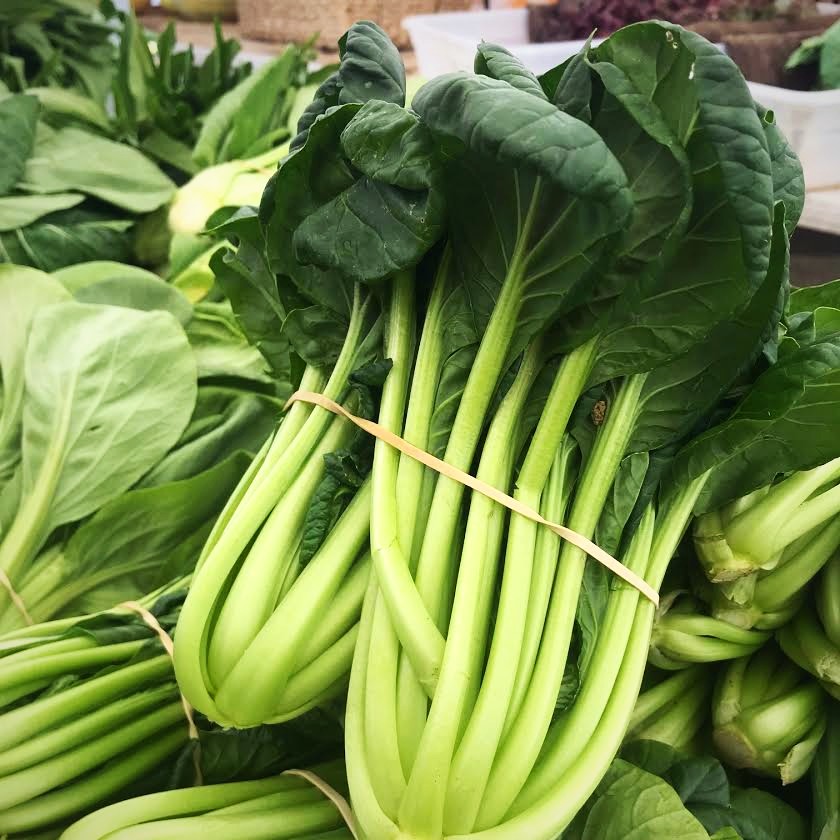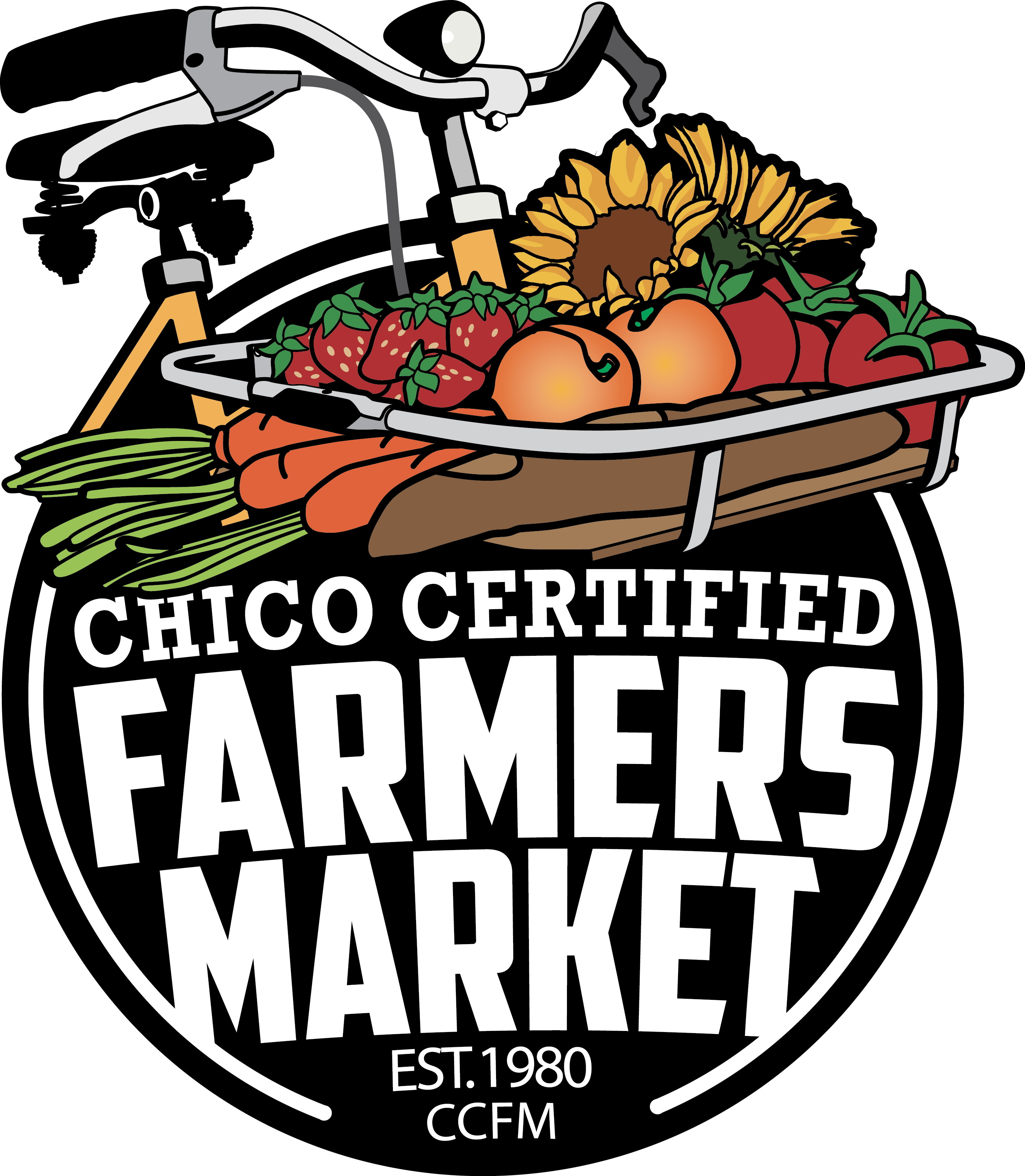We love kale, spinach, and chard just as much as the next person, but if you want to mix it up, these asian veggies are delicious, nutrition and oh-so versatile! Part of the cabbage family, bok choy was originally cultivated in China during the Ming Dynasty for its medicinal properties. The Chinese translation of bok choy means “white vegetable,” which describes the hearty stalks, but its different varieties display other colors. Below are three kinds of choy you can find at the Chico Saturday Farmers’ Market this week!
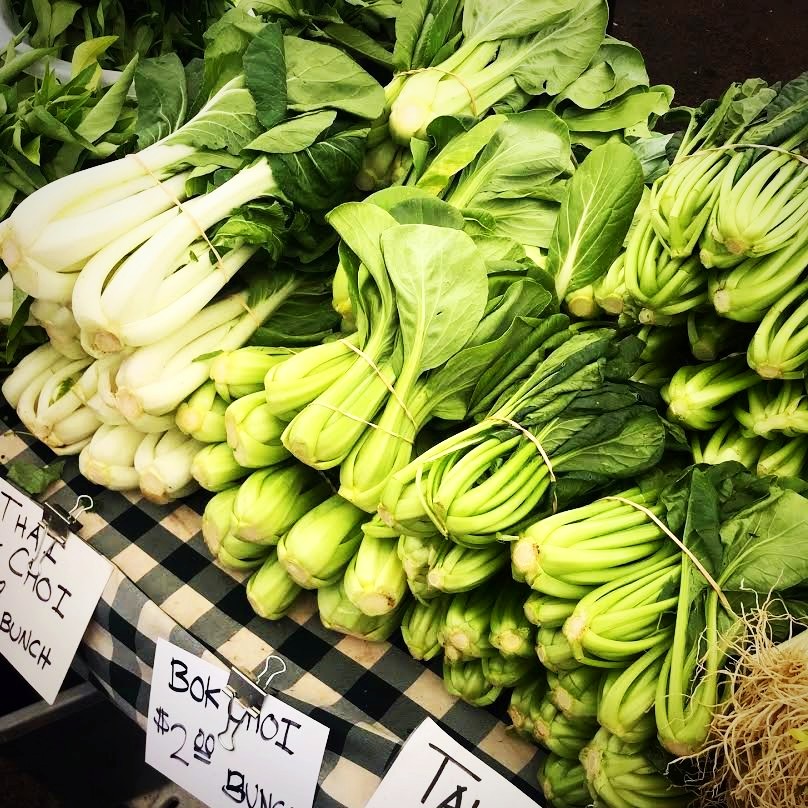
Chinese Bok Choy
This is the variety you most likely think of when you picture bok choy, as it is the most common. All parts of this “Chinese cabbage” including stalks, leaves, the and young flowering shoots are edible when young or mature. Many bok choy varieties have dark green leaves and firm white stalks. Bok choy leaves are tender and crisp, while the stalks are crunchy, firm and juicy. Baby bok choy is tender and delicious sautéed with garlic or added to soups.
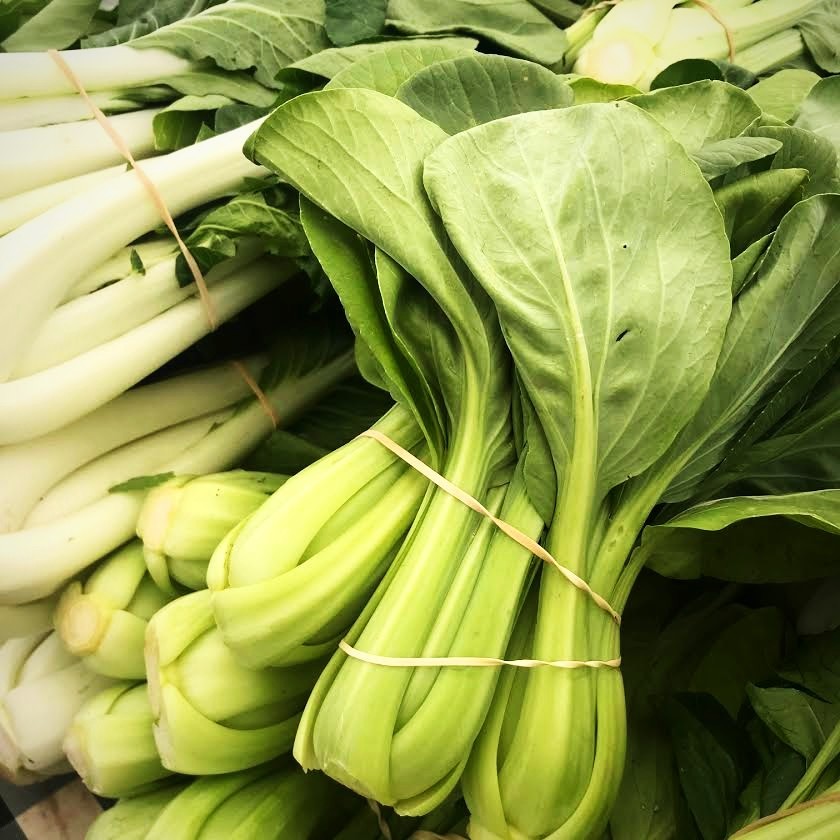
Thai Bok Choy
This pretty version has a similar taste to Chinese bok choy and can be used in all the same ways, but is larger than its Chinese counterpart and less common. It has long, white, crunchy stalks and large green leaves – all edible! Thai bok choy is especially great braised or steamed, or shredded raw in salads!
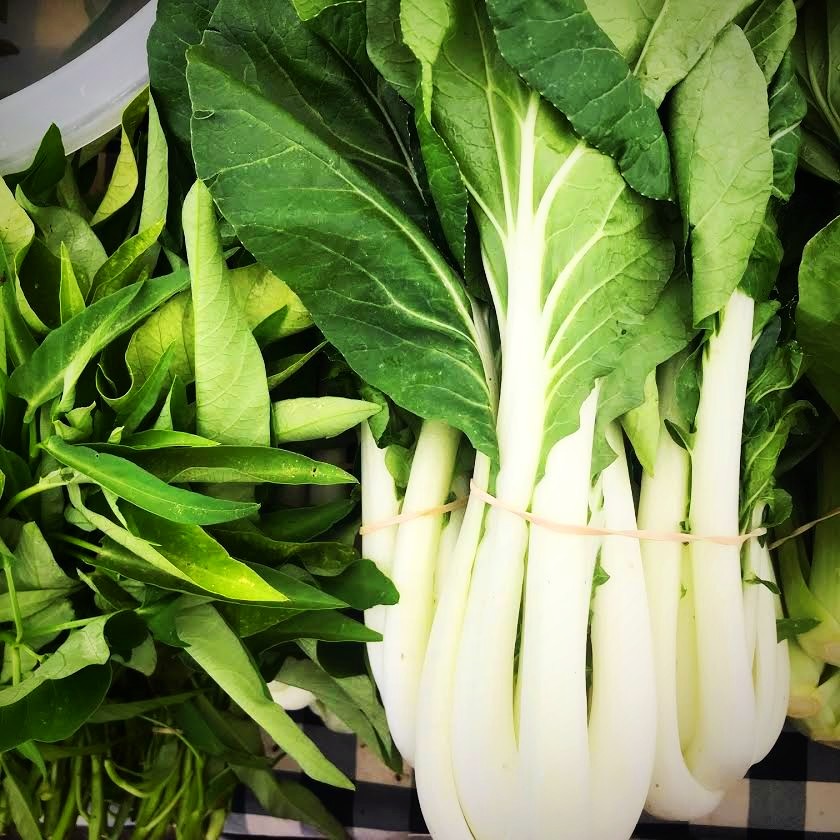
Tatsoi
Chances are you’ve already tried tatsoi before and didn’t know it! The mild, mustardy leaves often show up in mixed salad greens. Tatsoi’s round, dark green leaves grow close to the ground in tight little circles, creating pretty little rosettes. Tatsoi is also called rosette bok choy, spoon mustard, or spinach mustard. The tender greens have a slightly bitter, mustardy taste – much like mustard greens but more mild – and is slightly sweeter than bok choy. It can be eaten raw or lightly cooked and added to soups, stir-fried, or sauteéd. Young tatsoi works very well raw in salads.
